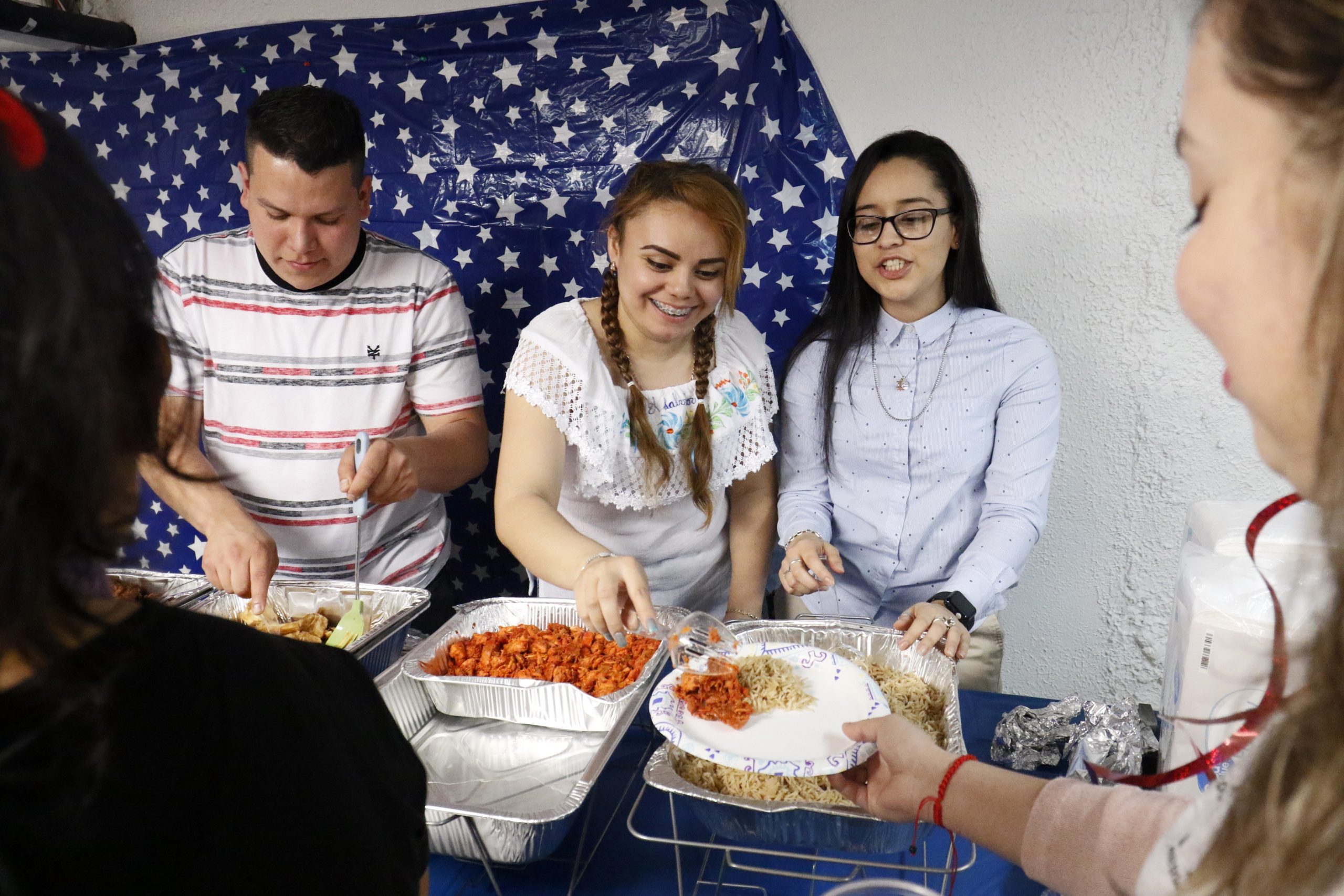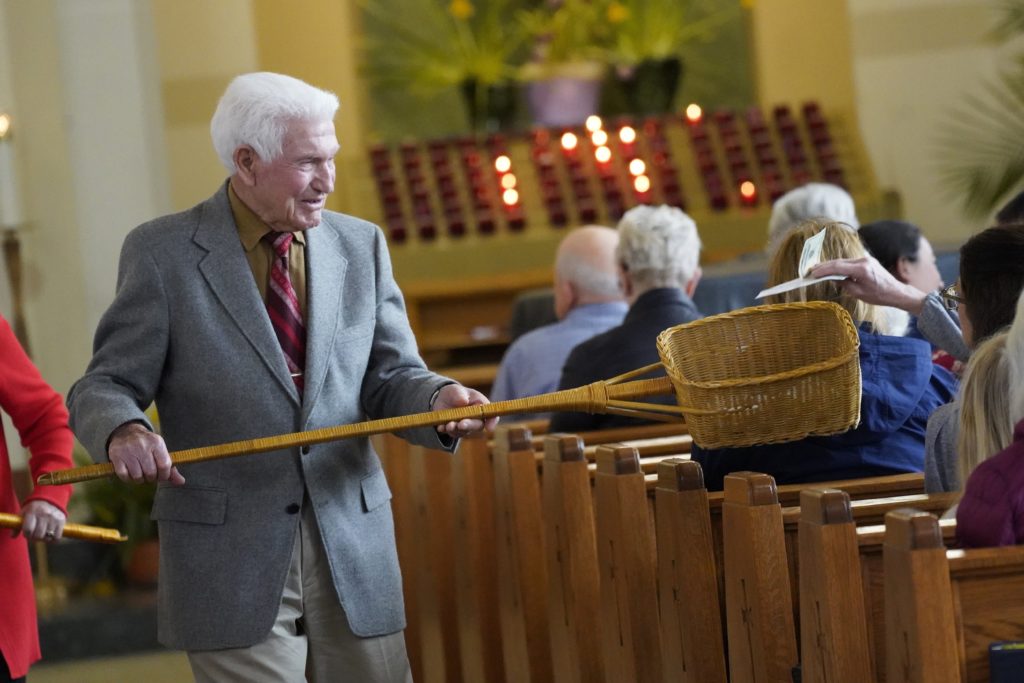Catholic social services are facing a funding crisis.
On Feb. 27, the U.S. State Department canceled its longstanding contract with the U.S. Conference of Catholic Bishops (USCCB), cutting funding for a refugee resettlement program that dates back to the 1980s.
The decision came after a monthlong funding battle that has panicked many nonprofits — including Catholic social services nationwide. As they’ve discovered, even a short-term federal funding freeze is enough to decimate programming.
“The Conference does not have the funds to continue operations in USCCB Refugee Services at the current levels,” read a Feb. 7 memo from USCCB General Secretary Father Michael Fuller. “As such, we must inform our local Catholic Charities and other subcontracting agencies that there will be a delay in payments until further notice. This will be a burden on them and the people they serve and will result in staff layoffs.”
Whether Catholic institutions should accept federal money can be, and is, debated. But the simple truth is that right now we are, and at significant amounts. For the USCCB alone, close to $20 million in outstanding reimbursements from December were frozen.
But this model is unstable, with just one month without that funding is enough to buckle some of the nation’s Catholic social services. And this reality exposes a historic and scandalous truth about American Catholics.
We just don’t give money like other Christians.

The almost immediate need to cut down staffing implies that our current levels of social services simply cannot function, even for a short period of time, relying solely on individual donations or private grants from the laity. And this is not a new phenomenon.
In fact, Catholics haven’t given at the same levels as mainline Protestants since the early 1960s, according to a 2006 book by Villanova University economics professor Charles E. Zech titled “Why Catholics Don’t Give … And What Can Be Done About It” (Our Sunday Visitor, $19.14).
At the book’s publication in 2000, Protestants were cited as giving 2.2% of income to their church compared to 1.1% of Catholics. That’s a 2:1 ratio — just slightly lower than the ratio of per capita giving to churches found in 2023 by the Lake Institute.
Donations to one’s church and total charitable donations are two separate numbers, and many try to explain lower levels of Catholics giving to their local church because of other charitable causes supported by Catholics — such as Catholic Charities. But the truth is, Catholics give less across the board.
According to the 2024 State of the Bible Report produced by the American Bible Society, 60% of Catholic giving goes to religious charities of all types, compared to 75% of Evangelical and 73% for historically Black denominations. Only Mainline Protestants gave to religious causes at a lower level of 52% — but considering their total average giving nearly triple Catholic giving, that lower percentage still equates to greater religious giving than Catholics.
For Catholics, 45% of religious giving was slated to their local church, again lower than Evangelicals and historically Black denominations and just 4% higher than mainline Protestants.
Put another way, the “other causes” that some use to rationalize low levels of parish giving statistically amount to just 15%. In real numbers, that’s an average of $237.15 based on the Lake Institute’s median giving data.
Again, this discrepancy in giving is not a modern phenomenon. The 1996 study “Money Matters” conducted by Zech and other economists found that “Catholics in our sample donated an average of $576 per household to religious and nonreligious causes outside their parish. This was the second lowest among the five denominations [surveyed].”
This is all despite Catholic churches leading the nation in top annual median income. According to the Lake Institute on Faith and Giving, the median income of American churches is up 42% from 2020 — with Catholic churches leading with the top annual median income.
But this view of the charitable forest is missing the trees. Catholics are, and consistently have been, less generous per capita than our Protestant brothers and sisters. That same report found that, in 2023, mainline Protestants gave a median of $2,748 per person versus Catholic median giving of $1,581.
So while our top-line numbers do show large averages in aggregate, the only reason is because Catholics currently outnumber other congregations. But that can, and is, changing.
Despite Catholics continuing to outnumber any single Protestant denomination according to the U.S. Census Bureau, the Pew Research Center found that Catholics have “experienced the greatest new losses” among America’s religious groups.
A full 43% of people raised Catholic no longer identify as such, the survey finds, “meaning that 12.8% of all U.S. adults are former Catholics.”
That is less than seven percentage points off from the 19% of U.S. adults who do identify as Catholics. And with 8.4 people leaving the Catholic church for every 1 person, it is not inconceivable that the number of lapsed Catholics could soon overtake the number of practicing ones.
As the Catholic population continues to fall, our giving crisis will continue to become more acute, especially without access to other funding sources like federal grants. Without concerted efforts by Catholic leadership and laity to increase our levels of giving, the cuts in Catholic social services seen today will likely just be the tip of the iceberg.

